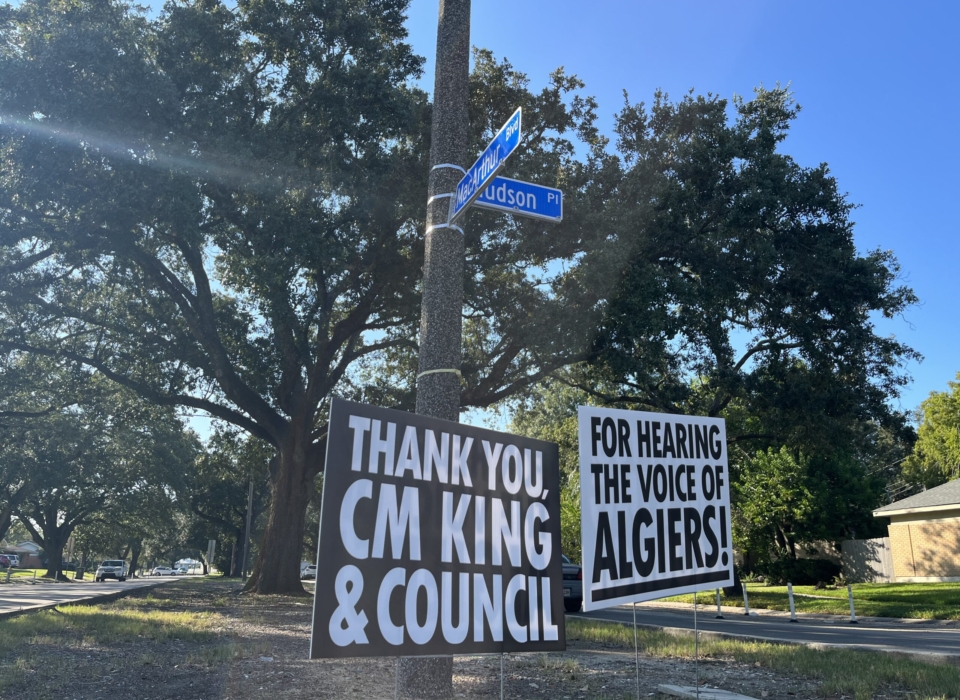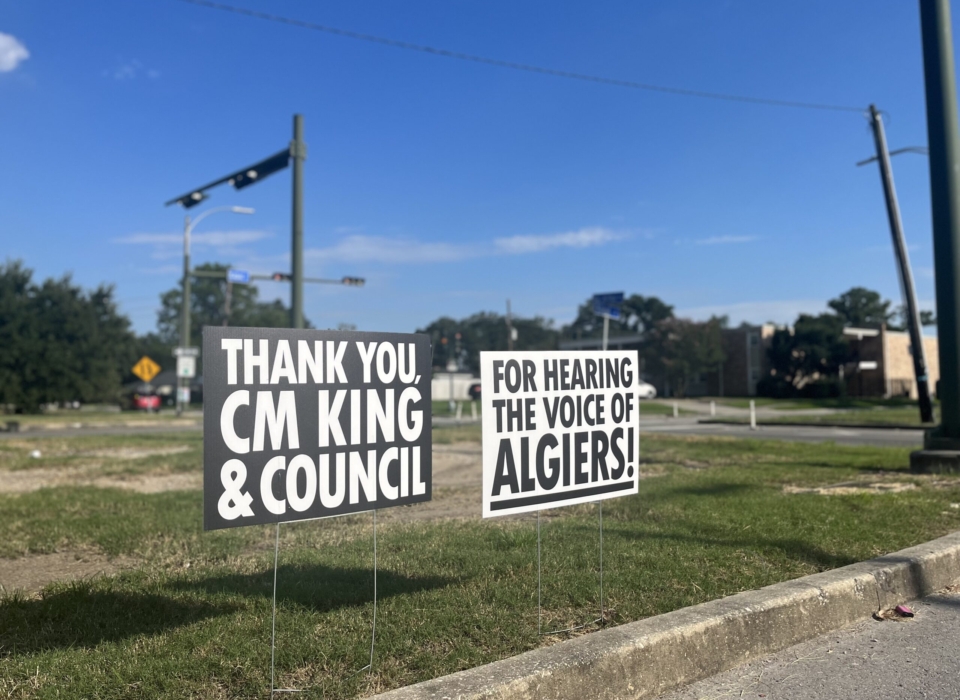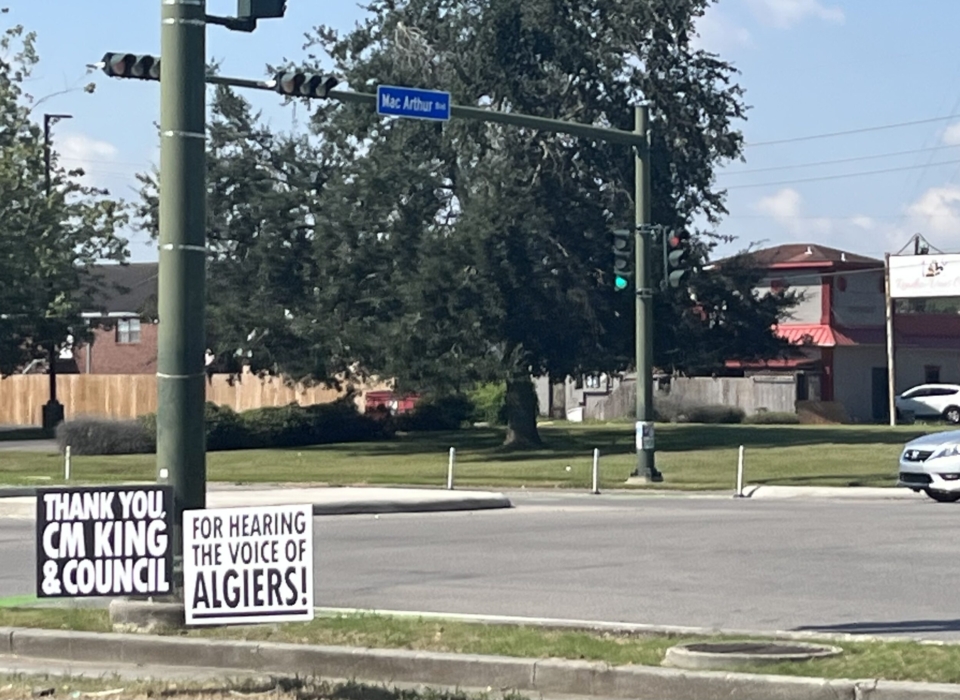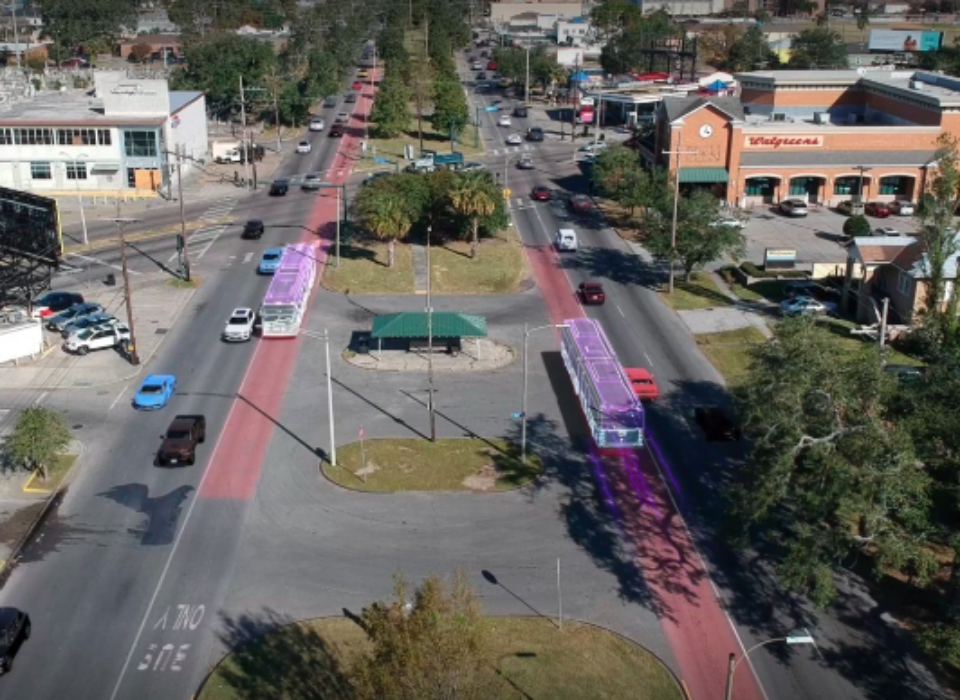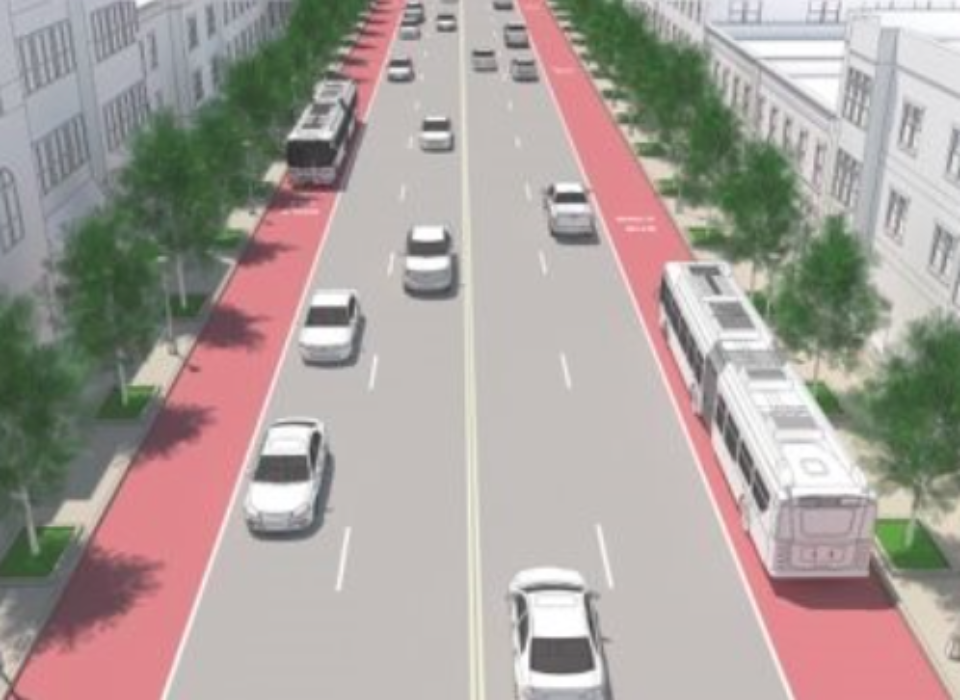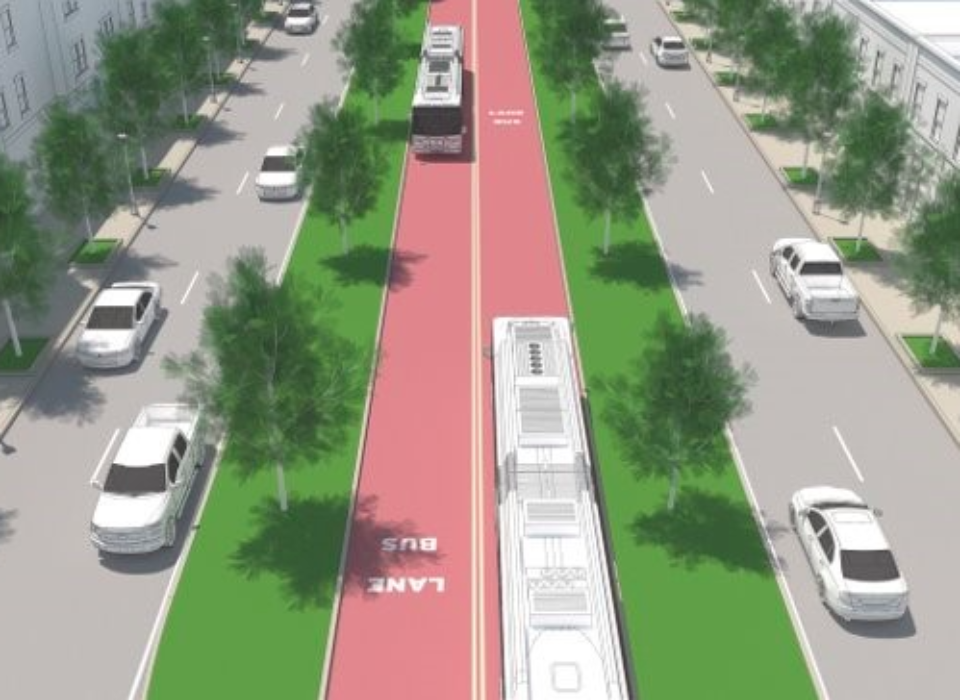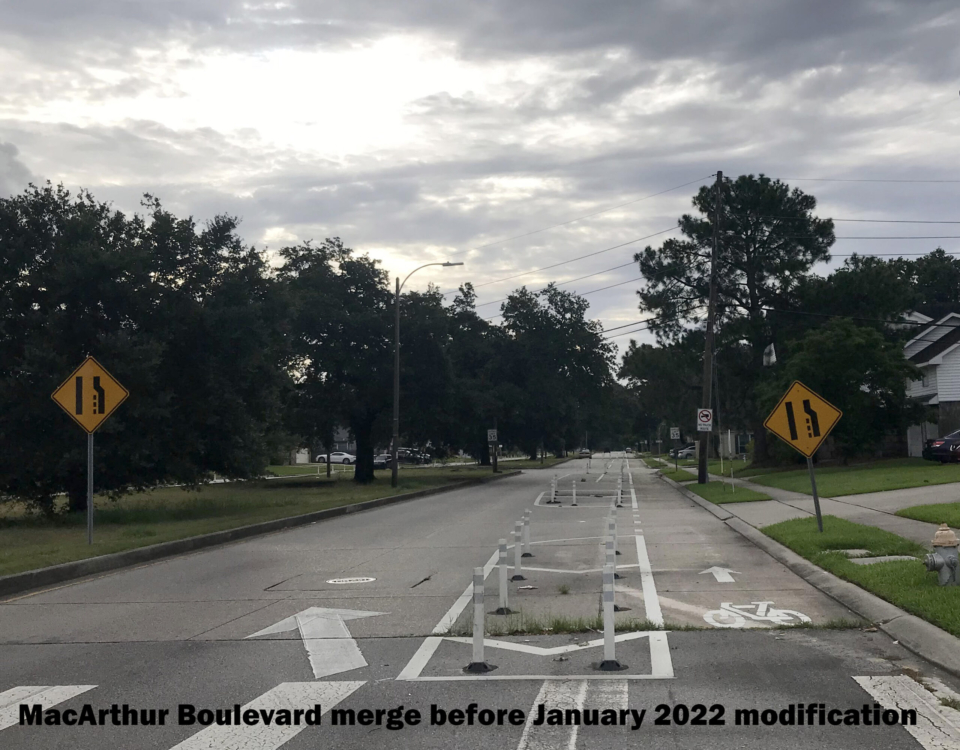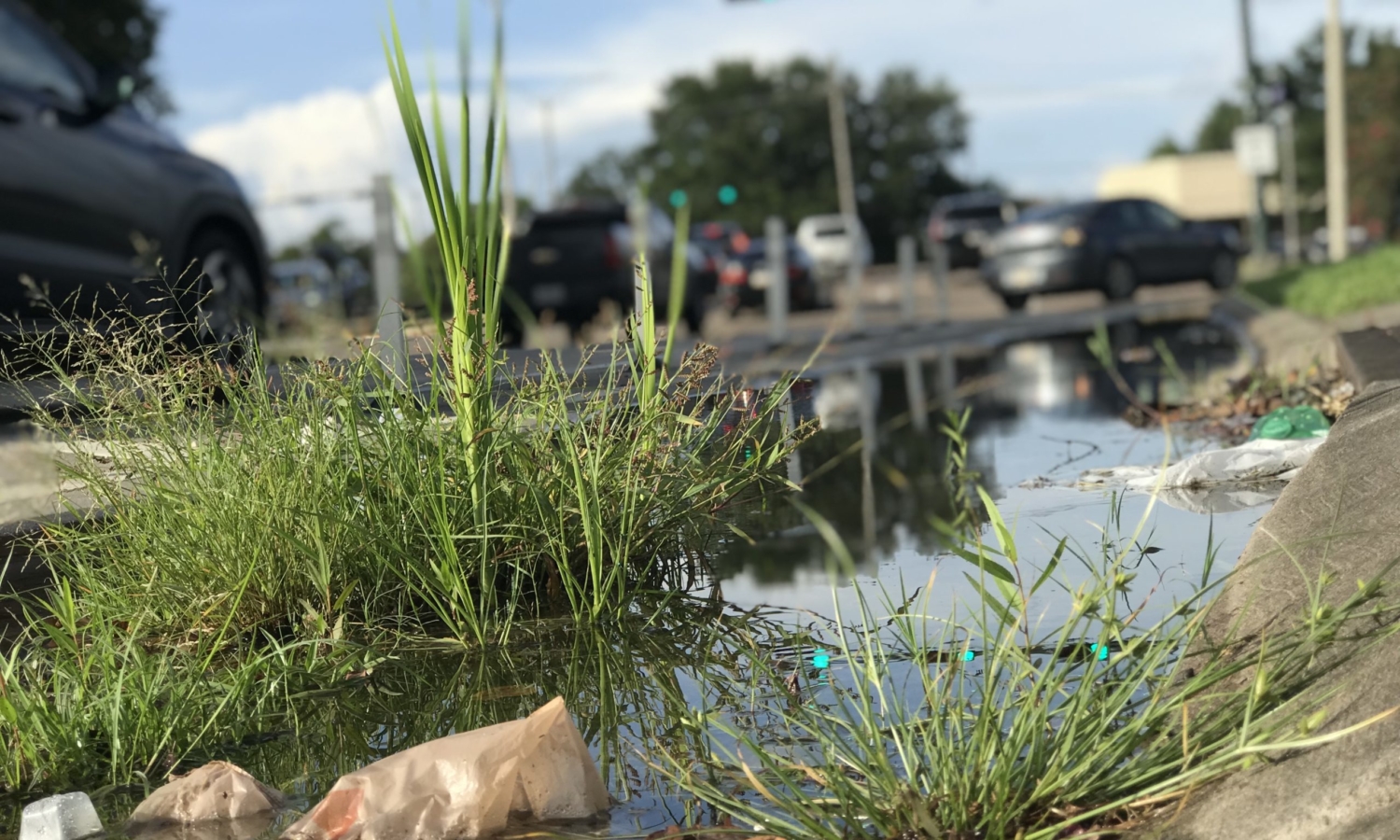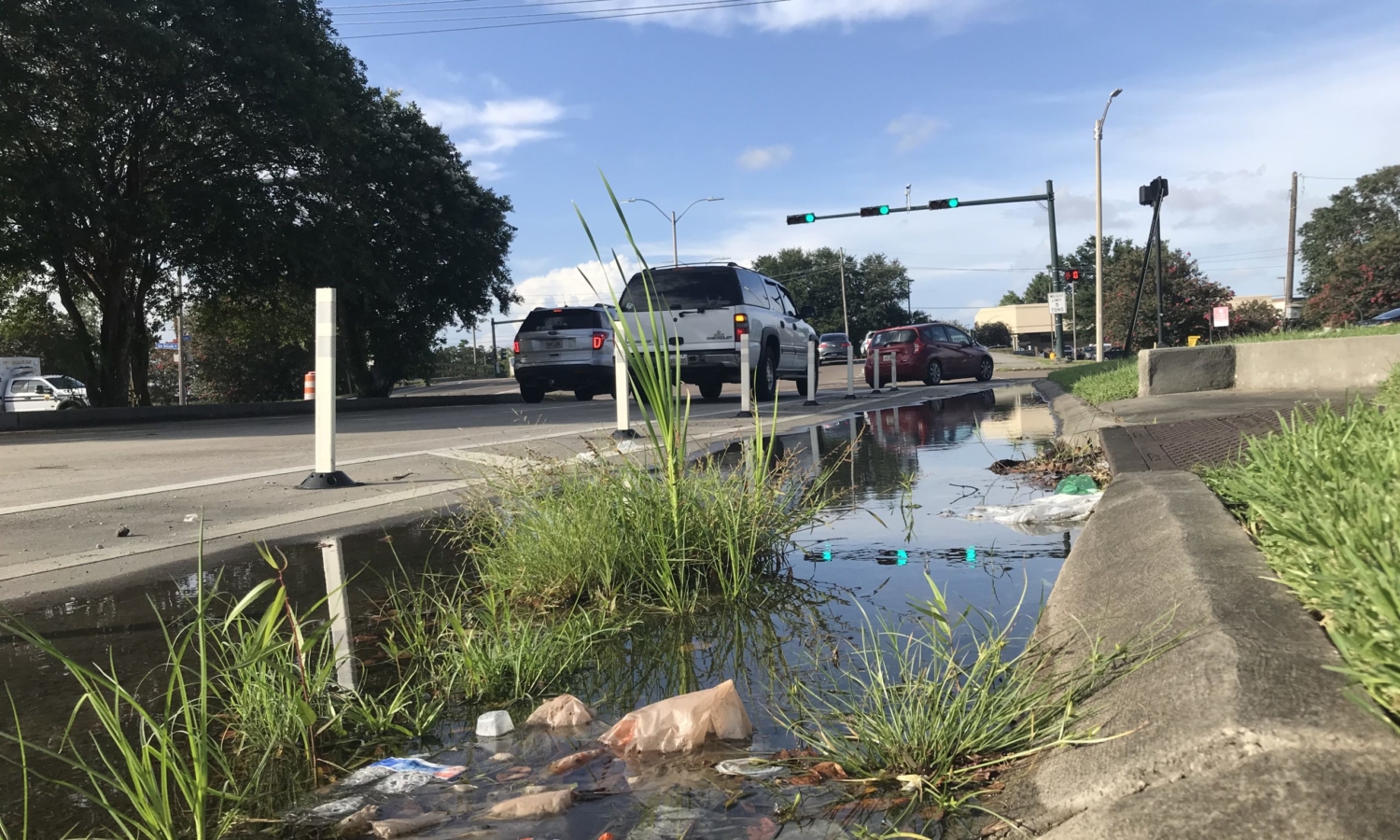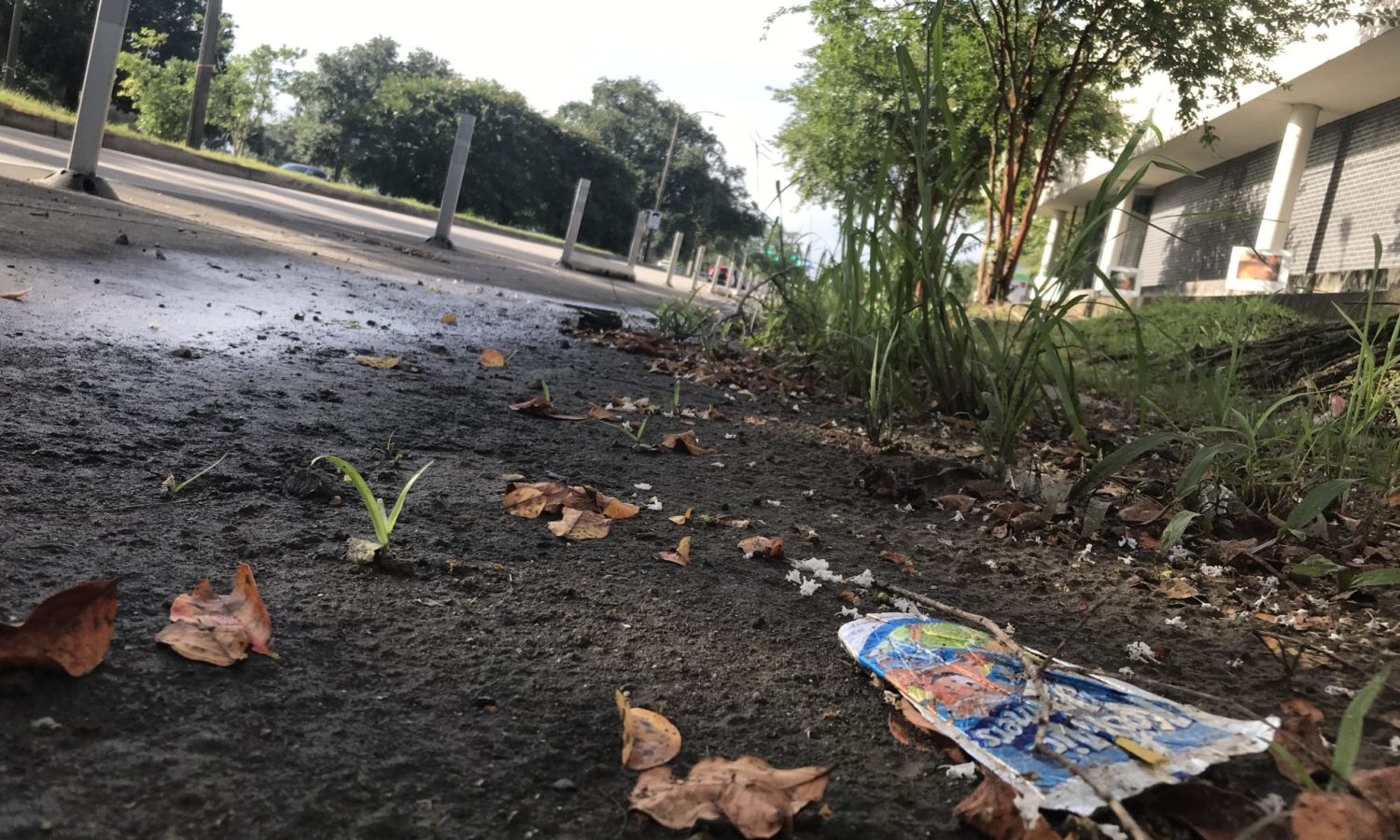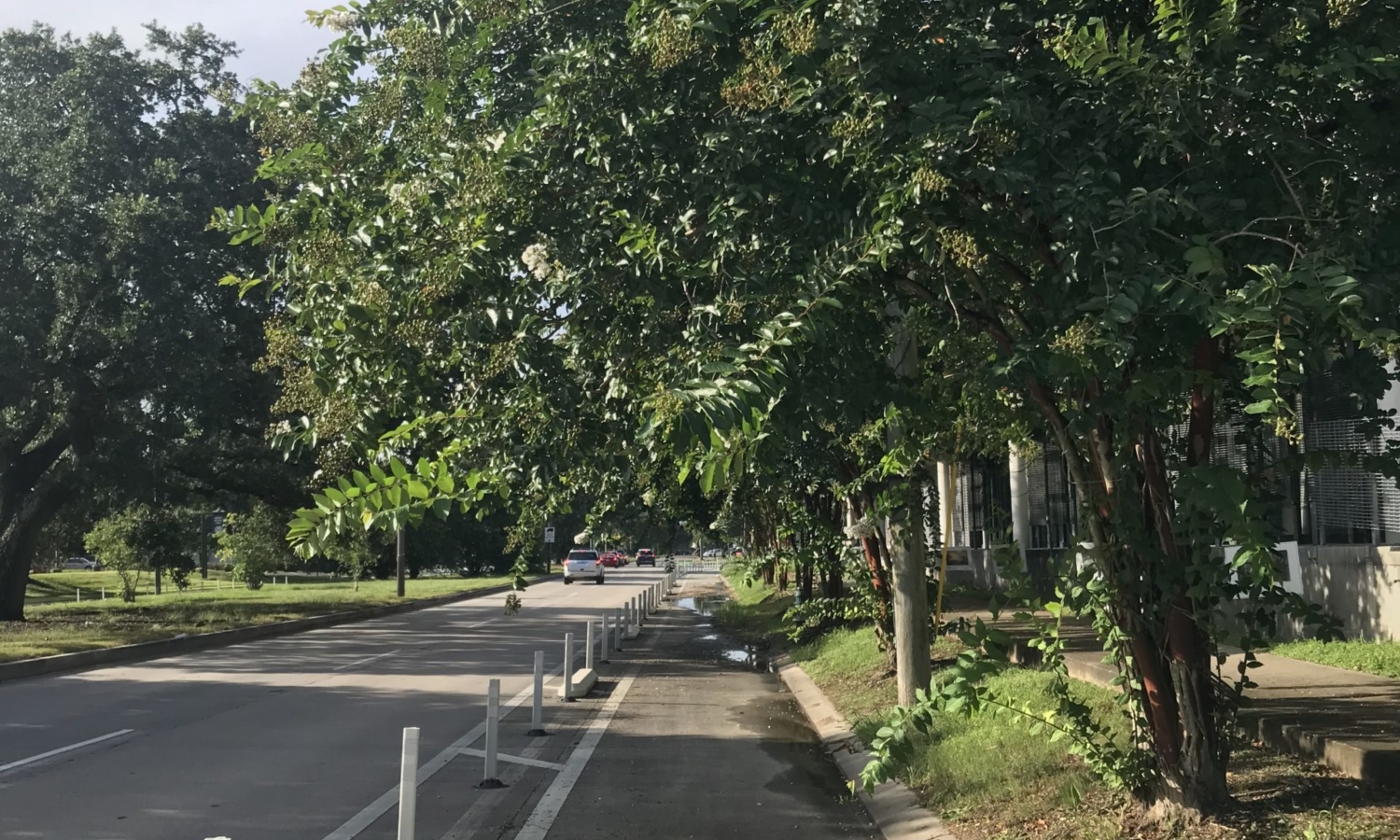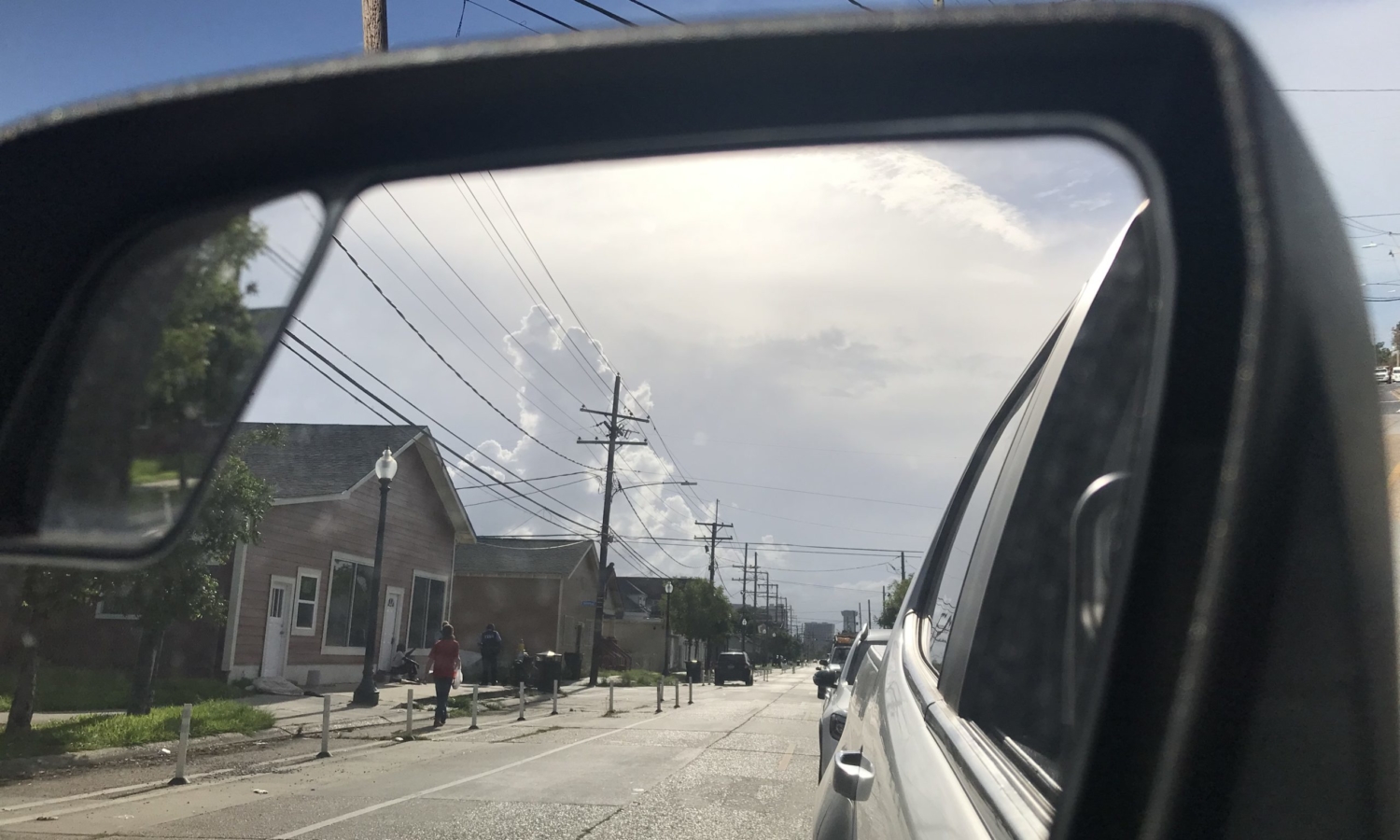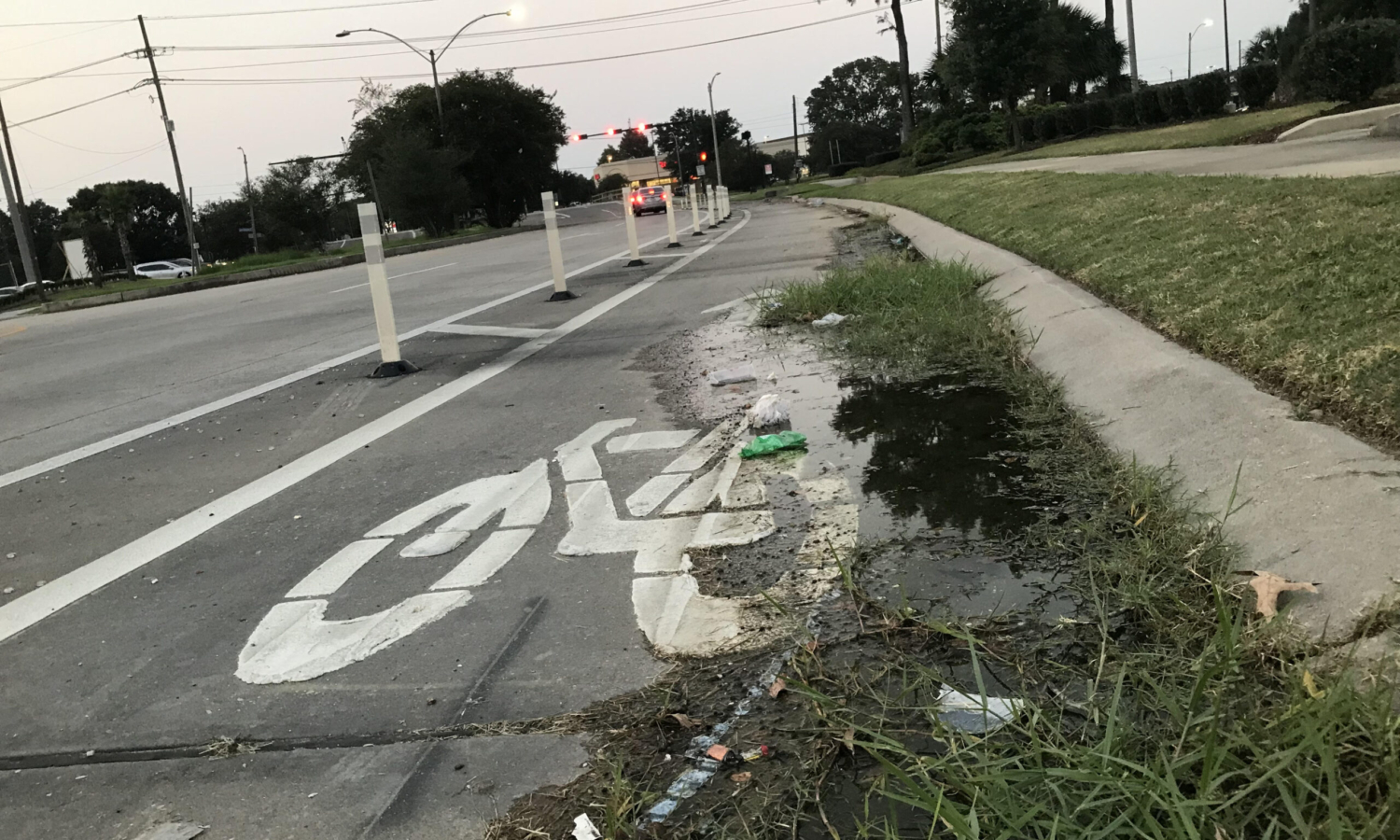Our Streets NOLA
About us
We’re an Algiers-based grassroots neighborhood group formed in the Spring of 2021 in response to Mayor LaToya Cantrell administration’s Moving New Orleans – Bikes program. Local and national special interests groups have had a heavy hand in determining how our streets have been redesigned to accommodate a very small bicycling community. As individuals, we have varied opinions about bike lanes. As a group, we do not oppose bike lanes. Far from it. We do oppose the Cantrell administration’s rushed, one-size-fits-all plan. We favor a more sensible bike lane system, one based on community need as opposed to this cookie-cutter design.
That’s why we fought to have the “protected” bike lanes removed from MacArthur Boulevard and Newton Street.
We’ve evolved into a hyper-local information source.
Two years could pass before a Holiday Drive bridge over the de Gaulle drainage canal is reopened
Built and open in 1958, the James. W. Hibben Memorial Bridge was permanently closed on Ash Wednesday 2026. Named for one of Algiers’ native sons, the bridge will be demolished and replaced. It remains to be seen whether the new bridge will be rededicated in Hibben’s name. His descendants and the Algiers Historical Society hope the plaques erected at the bridge are installed again when the new bridge eventually opens.
Corps of Engineers urges motorists to plan alternate routes for when the Holiday Drive bridge at Gen. de Gaulle closes on Feb. 18

Built in 1958, the James W. Hibben Memorial Bridge is being closed in connection with the federally funded drainage improvement project. Separately, the City of New Orleans’ Department of Public Works has said it plans to demolish the bridge and replace it. We’re waiting for the DPW to release details about its plans for the bridge. Click here to read more.
‘Bus Rapid Transit’ plan that will restrict access to Mississippi River bridge HOV lanes advances
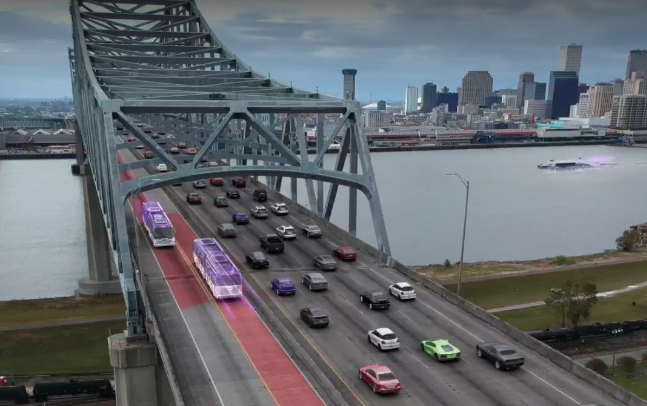
The Regional Transit Authority plans a rail-like bus line to move mass transit users to their destinations faster while attracting more riders. Under ‘bus rapid transit,” motorists will lose access to the Crescent City Connection’s high-occupancy vehicle lanes. Click here to read the latest on the plan.
CONGRATULATIONS, COUNCILMAN KING!
King resoundingly re-elected with 64 percent of ballots cast in the Oct. 11 primary
Read our endorsement
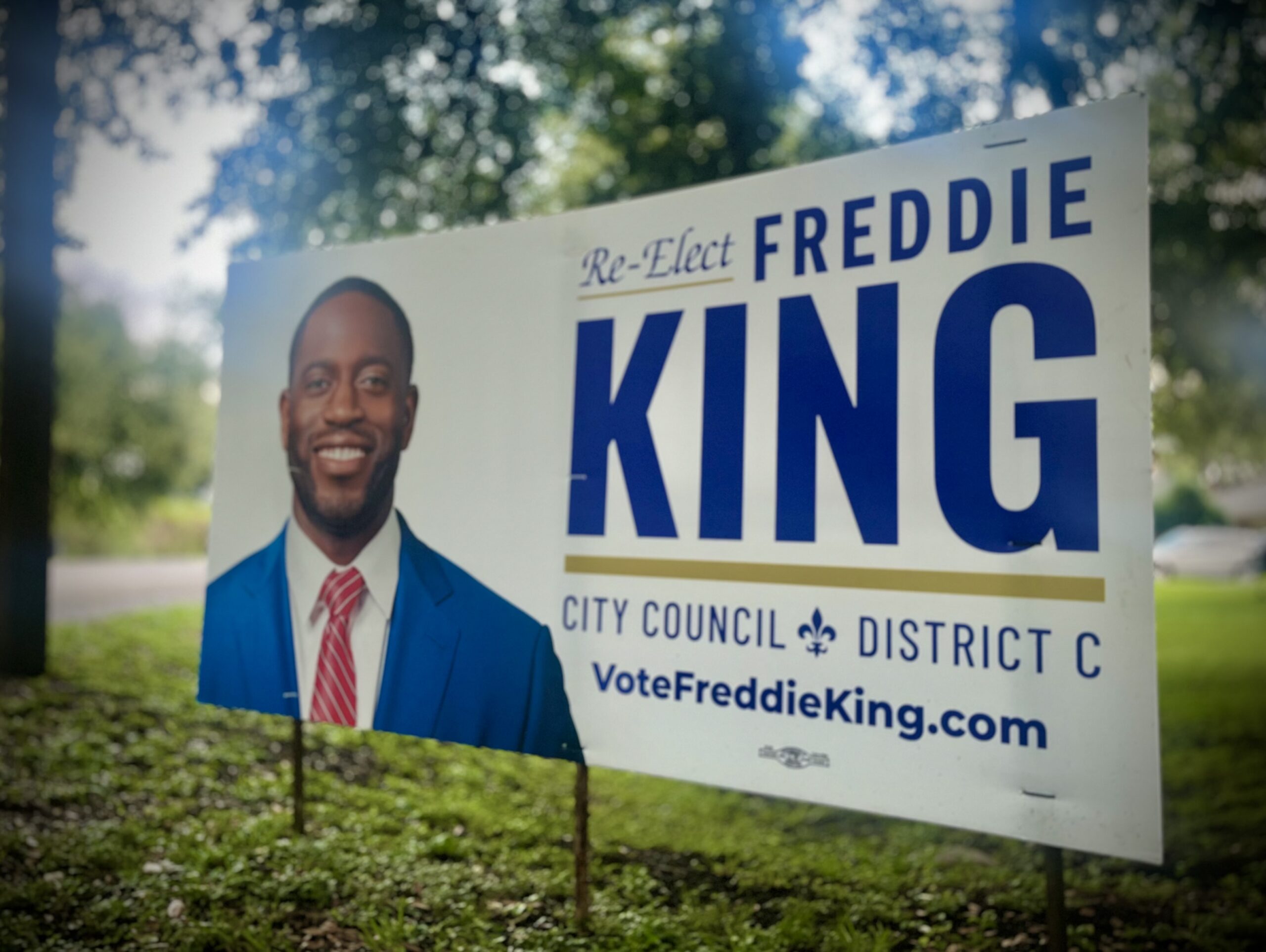
New Orleans’ 2025 campaign season was barely three weeks old, but one thing was clear from the beginning in the City Council’s District C race: Had either of Councilman Freddie King’s two more vocal challengers been in office four years ago, Newton Street and MacArthur Boulevard would still have the highly unpopular protected bike lanes. More so, one of his chief rivals on the ballots in coming weeks opposed removing the bike lanes and has cozied up to bicycle enthusiasts who have a track record of disrespecting Algiers residents merely because they disliked the bike lane designs. Click here to read our views on the District C race.
Featured: Meet “Shavey” Hibben, for whom the Holiday Drive bridge is named
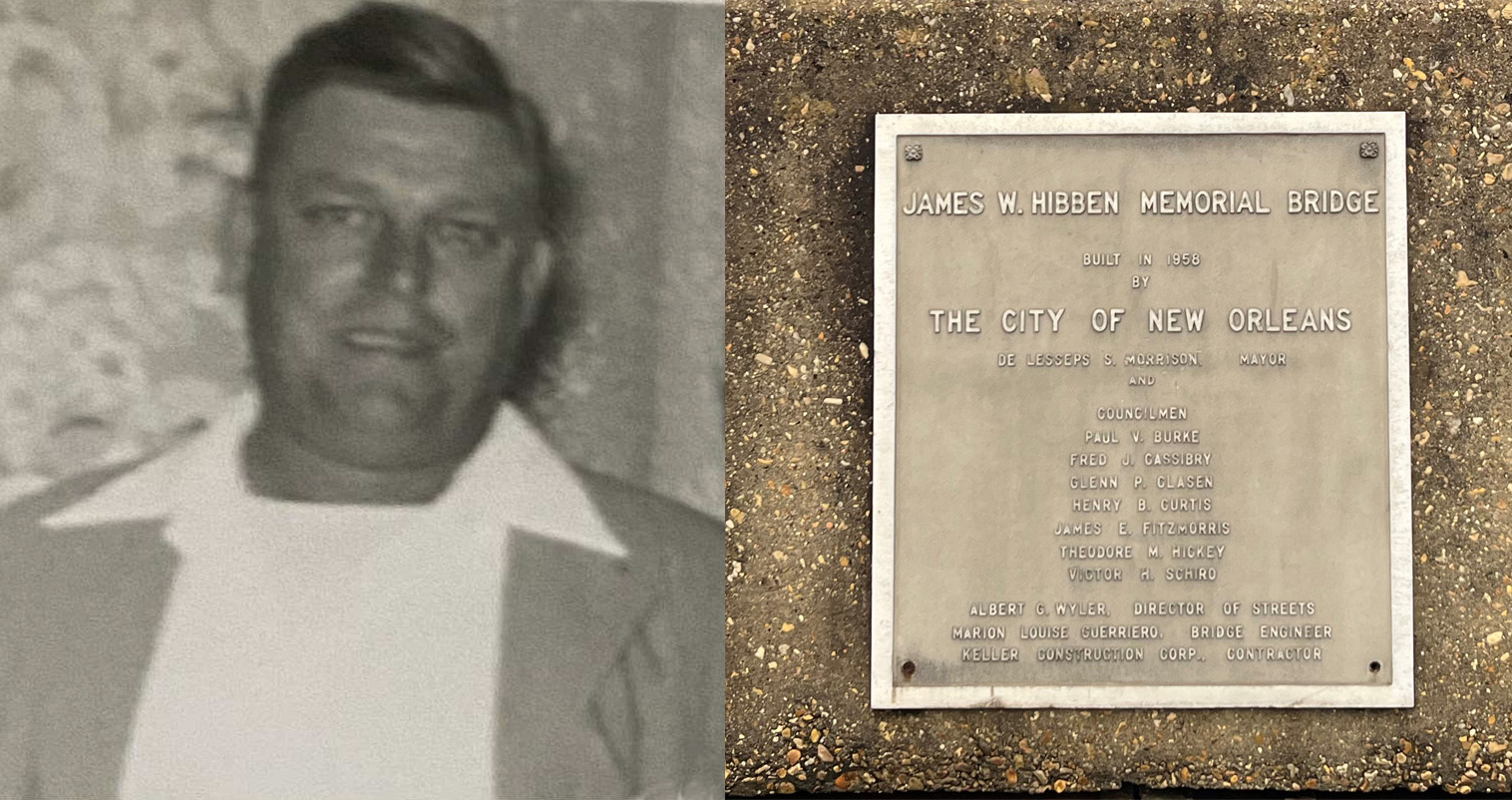
The 67-year-old James W. Hibben Memorial Bridge will be demolished this year
A lifelong resident of Algiers Point, James W. “Shavey” Hibben, a carpenter and family man, died in 1958 when he was 43 years old. His friend Blaine Kern Sr. had a hand in convincing the City of New Orleans to name the Holiday Drive bridge over the Algiers Outfall Canal in Shavey’s memory. After almost seven decades of providing a vital crossing in the heart of Algiers’ commercial district, the bridge will be demolished this year, city officials say.
Click here to read more about Shavey and see photographs his descendants shared.
UPDATE: Army Corps of Engineers says permits being sought to plant trees along Gen. de Gaulle
When the federally funded drainage system improvement project began in Algiers several years ago, 271 trees were removed from the Gen. de Gaulle Drive neutral ground to make space for construction. The Corps of Engineers tells us that it’s working with the state to obtain permits to plant new trees. Click here to read our update.
Read Our Street NOLA’s past reports:
Holiday Drive’s Hibben Bridge to be demolished, replaced as canal construction continues
“It’s not structurally sound,” District C Councilman Freddie King III told residents at the Huntlee Village Neighborhood Association meeting on June 5. The James W. Hibben Memorial Bridge was to be retained even though the Gen. de Gaulle Drive drainage canal is improved. City officials have changed their minds on the bridge and hope voters approve a millage proposal appearing on ballots in November to pay for it and other projects citywide. The bridge is a vital link in the heart of Algiers’ commercial area. Click here to read more.
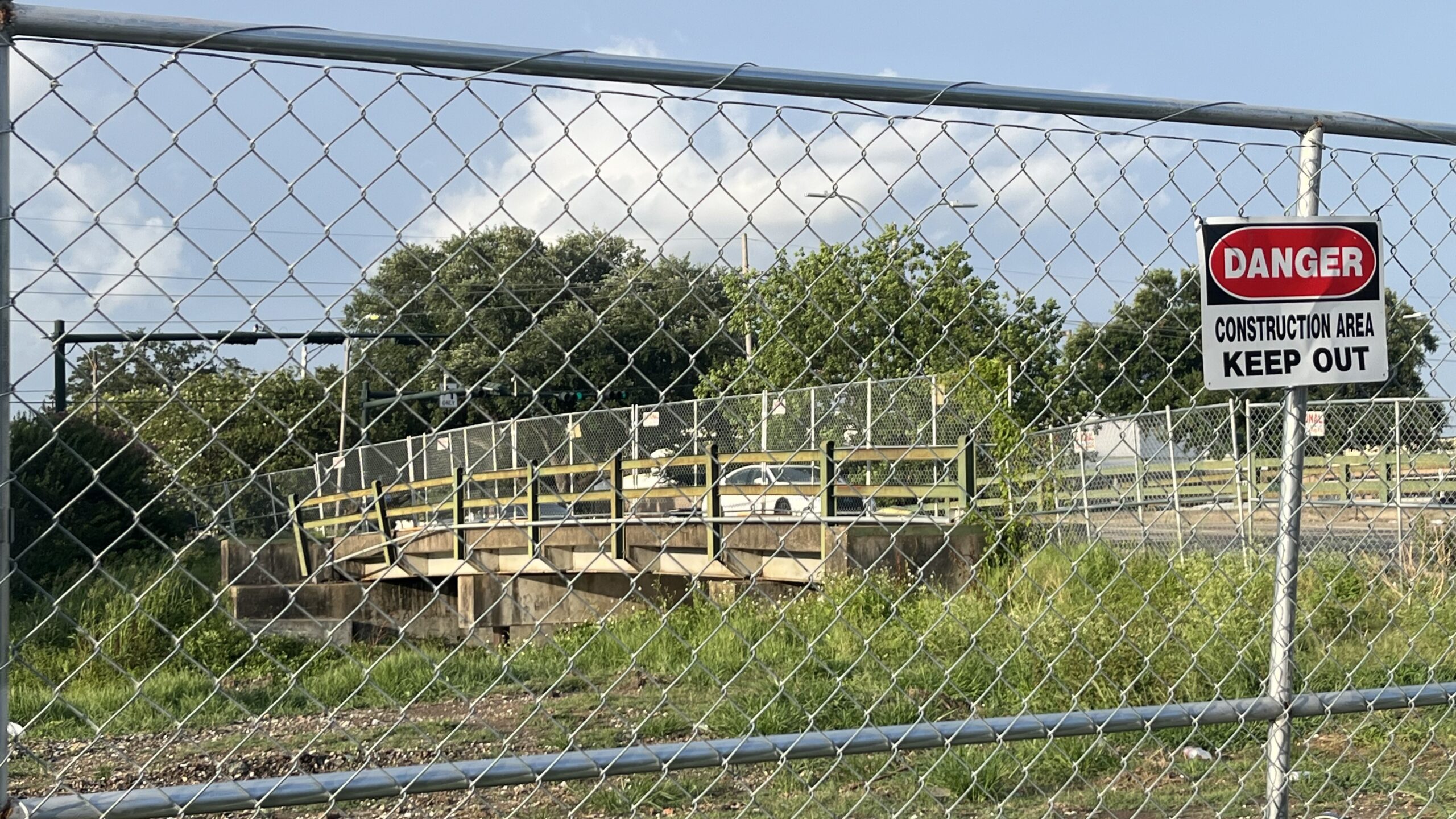
Holiday Drive bridge to be closed during Gen. de Gaulle drainage canal construction
Officials with the U.S. Army Corps of Engineers and Sewerage & Water Board of New Orleans told Algiers residents in an August 2024 meeting that the James W. Hibben Memorial Bridge would be closed once construction on the drainage canal reached 100 feet of the aged span. Replacing it was not part of the federally funded drainage improvement project, officials said. Click here to read more.

IT’S A WRAP!

Mayor LaToya Cantrell’s Department of Public Works is finished removing bike lanes on MacArthur Boulevard and Newton Street.
It’s official. District C Councilman Freddie King III has confirmed that no work remains to be done on MacArthur in response to the City Council’s demand that the protected bike lanes be removed. That means the bike lanes and bollards we see now will remain.
Newton Street, where Mayor Cantrell held a press event just over three years ago to cheer the coming of Algiers’ planned bike lane network, has been completely redesigned.
While we can say this is a victory for many Algiers residents, we caution you that City Hall still has its sights set on bike lane installation on thoroughfares, such as Woodland Drive and Holiday Drive.
Read our report and view our videos about the dismantling by clicking here.
‘BRT’ revives decades-old HOV dispute
The RTA says the Crescent City Connection’s HOV lanes are “key” to the success of ‘Bus Rapid Transit’ line’s connection to Algiers. Indeed, according to the RTA’s 2018 Strategic Mobility Plan, a long-term planning document, the BRT “high-capacity transit” system has been in the works at least five years. While the BRT plan is relatively new to New Orleans, the selling point is not. Transit authorities made similar arguments more than 25 years ago, the last time they sought full use of the bridge’s HOV lanes. The HOV-2 configuration we now see was enshrined in state law in 1997. Click here to read our lengthy look at BRT and the HOV.

When will Algiers bike lanes be removed? This year, we hear.
During a hearing with the Department of Public Works’ interim director Wednesday (March 29), City Council members pressed for an answer on when 2.2. miles of protected bike lanes be removed on MacArthur Boulevard and Newton Street. Councilman Freddie King III said frustrated residents are cutting down some of the flex post bollards. “They’re taking it upon themselves to cut them down, because in their mind the city as a whole gave a promise. The city is now reneging on that promise,” King said. Click here to remove more.
City Council approves ‘Bus Rapid Transit’ route
In an unanimous vote Thursday, the City Council said yes to the 15.4-mile route the Regional Transit Authority’s “Bus Rapid Transit” system will follow, from Algiers to eastern New Orleans. The vote clears the way for the RTA to apply for federal funds to help build the system that would rely on local funding and cost more than $250 million. The council deferred a vote on the route last month after District C Councilman Freddie King III of Algiers raised concerns that commuters will lose access to the Crescent City Connection’s HOV lanes or other lanes, exacerbating traffic congestion. Since then, his concerns have been assuaged. “So, this has my full support,” King said. Click here to read more.
‘Bus Rapid Transit’ vote deferred
At Councilman Freddie King’s request Tuesday (Feb. 14), the City Council’s Transportation Committee deferred a vote on the New Orleans Regional Transit Authority’s ‘Bus Rapid Transit’ plan. Councilman King said he supports the plan overall. But he does not support dedicating vehicle lanes for buses only – including lanes on the Crescent City Connection and on Gen. de Gaulle Drive. The committee will revisit the matter in March. Click here to read more.
RTA seeks federal funding for ‘Bus Rapid Transit’ plan
In what appears to be a perfunctory vote, the Regional Transit Authority’s Board of Commissioners on Tuesday in effect approved a policy document that’s needed in order for the agency to begin the process of securing federal grant money for the ‘Bus Rapid Transit’ line. Still, RTA officials say no final decisions are made on the plan’s details, including the part that means commuters would no longer be able to use the Crescent City Connection’s high-occupancy vehicle lanes. Click here to read more.
RTA planning for ‘Bus Rapid Transit’ plan ongoing
A senior planner with the Regional Transit Authority told an Algiers audience that planning is still ongoing for its “Bus Rapid Transit’ plan, under which motorists will no longer be able to use the Crescent City Connection’s HOV lanes, and general travel lanes on Gen. de Gaulle Drive would be dedicated for buses only. Many residents aren’t happy with what they’re hearing. Residents can voice their opinions on the Bus Rapid Transit plan by emailing [email protected]. Click here to read more about the RTA’s plans.

An Algiers resident (right) voices her concerns about the Regional Transit Authority’s “Bus Rapid Transit” proposal to RTA interim Chief of Planning and Infrastructure Dwight Norton (standing behind podium) and RTA Commissioner Fred Neal Jr. (standing on right). Norton and Neal held a project update meeting on Monday (Jan. 23) at the Algiers Regional Library.
City Council approves bike lane removal funding
Mayor LaToya Cantrell’s Department of Public Works now has a funded mandate. More than 2 ½ months after it ordered DWP to remove 2.2 miles of protected bike lanes in Algiers, the New Orleans City Council on Thursday (Dec. 1) inserted $300,000 in the department’s budget specifically to make it happen. District C Councilman Freddie King III, who has spearheaded the bike lane removal effort on behalf of constituents, in all has sought $1 million to ensure DWP has the funding available to get the job done. Click here to read more.

City Council orders public bike lane meetings
The New Orleans City Council on Thursday (Nov. 3) unanimously approved an ordinance that requires Mayor LaToya Cantrell’s Department of Public Works to hold numerous meetings to inform the public about its bike lane plans in advance of those bike lanes’ installation. At-large Councilman JP Morrell and District C Councilman Freddie King III sponsored the measure. Click here to read more.
Council rebukes DPW for poor public outreach
Councilman Freddie King asked Mayor LaToya Cantrell’s Department of Public Works for a ‘robust review’ of Algiers bike lanes. He also asked DPW to come up with alternative bike lane designs for MacArthur Boulevard and Newton Street. After receiving no response, he sought the protected bike lanes’ removal altogether on those two streets — and succeeded. Separately, At-Large Councilman J.P. Morrell announced he’s introducing legislation that would require DPW to hold three public meetings in each of the seven council districts to educate residents on the city’s bike lane plans. Click here to read more.
After the City Council voted unanimously on Sept. 15 to remove the protected bike lanes on MacArthur Boulevard and Newton Street, the ‘Our Streets’ group acquired and distributed signs thanking council members for their consideration, as the photographs above show.
Councilman King’s legislation
From his first public hearing on bike lane legislation as chairman of the City Council’s Community Development Committee to his community hearing at Alice Harte Charter School on Sept. 7, you can read about Councilman Freddie King’s efforts on our webpage devoted to the topic by clicking here.
An Algiers bicyclist’s letter to the City Council
In advance of the City Council’s Sept. 15 vote on Councilman Freddie King’s proposal to return MacArthur Boulevard and Newton Street to the way they were before protected bike lanes were installed, people on both sides of this controversial issue have lobbied members of the council. An Algiers resident for more than 19 years and a longtime bicyclist, Paul Purpura is among them. He shares his letter.
MLK Jr. Boulevard ‘re-imagined’
The Cantrell administration says it’s about to “re-imagine” a 14-block stretch of Martin Luther King Boulevard, a main Central City thoroughfare. Between South Claiborne and St. Charles avenues, roadway repairs and a new layer of asphalt are coming. So, too, ADA-compliant curb ramps and protected bike lanes. Central City residents might want to imagine MLK Jr. Boulevard without fewer car lanes and no curbside parking. We Algiers residents know Central City residents are about to go through some things. Click here to read our open letter to Central City residents.
RTA buses could get dedicated street lanes, HOV lanes
At a time when Mayor Latoya Cantrell’s administration is closing car lanes in favor of bike lanes, the Regional Transit Authority is studying a plan that could mean that drivers lose a travel lane on part of Gen. de Gaulle and would be barred from using the Crescent City Connection’s HOV lanes. The concept, called “Bus Rapid Transit, or BRT, would be designed to carry bus riders to downtown New Orleans from Algiers and New Orleans East faster and more efficiently, primarily through the use of street lanes reserved for exclusive use of buses. Click here to read more.
THANK YOU!
To everyone who presented their views to the New Orleans City Council’s Community Development Committee on Monday (March 28), the Our Streets Our Choice Coalition thanks you. We also thank Council members Lesli Harris, Freddie King and Joe Giarusso for the careful attention they paid to the presenters who provided information and an array of views on the Moving New Orleans – Bikes initiative lead by Mayor LaToya Cantrell’s administration. Leadership at the Department of Public Works, Bike Easy, the Algiers Street Riders and our grass-roots group participated. We plan to provide updates about Councilman King’s efforts to create a “robust review policy” for bike lanes. We urge the city to do more to reach out to its citizens and to think again about reducing the number of motor vehicle lanes. We can find common ground to ensure the safety of bicyclists while making more sensible decisions about roadway designs. You can click here to see our webpage devoted to this subject.
New videos
Describing herself as “an American with a French accent,” Gisele Schexnider is one of more than 100 homeowners on MacArthur Boulevard. In early 2021, the city dramatically redesigned MacArthur, removing two of its four car lanes, barring residents from parking along the curb and installing hundreds of 29-inch-high bollards to benefit bicyclists. She lost the one on-street parking spot she had. Please take three minutes to hear describe what she sees – and what she doesn’t see:
In April 2019, Eric Gordon, a retired, lifelong Algiers resident, attended one of the meetings the city held in connection with its bike lane plans. He shares his recollections about what he saw was in store for Gen. Meyer Ave., and what he didn’t see for MacArthur Boulevard. Take two minutes to watch (and take note at 1:20 of the car entering from the left, its driver casually running the red light to turn east on MacArthur):
Bad drivers, not bicyclists prevalence, drive bike lanes
Routinely, the City of New Orleans provides the public with car crash and motorist speeding data when explaining why it’s installing protected bike lanes on its roadways. Yet, missing is the number of bicyclists who actually use the roadways. No doubt, in some New Orleans neighborhoods, the number could be seen as significant. But in areas such as Algiers’ MacArthur Boulevard corridor, where bicyclists numbers are barely existent, residents are wondering why the city installed the most intrusive, visibly unattractive bike lane designs available: protected bike lanes. Bicyclist advocates say, basically, that the protected bike lanes are needed. Click here to read more.
Big Easy Biking
Although the City of New Orleans is investing millions in building a protected bike lane network, some bicyclists opt to ignore them, as this man did on a recent Saturday morning at MacArthur Boulevard and Holiday Drive in Algiers. Citing the number of car wrecks that have occurred at that intersection, the city installed protected bike lanes there.
Some news about Gen. Meyer
If Mayor LaToya Cantrell’s administration and bicycle advocates get their way, Gen. Meyer Avenue, Woodland Drive and the Woodland Bridge would be dramatically transformed. Algiers residents need only to look to MacArthur Boulevard to see what could be in store for Gen. Meyer and Woodland: New bike lanes and fewer motor vehicle lanes. Whatever becomes of Gen. Meyer, no work is expected to begin before 2023. Click here to read more about Gen. Meyer plans.
MacArthur bollard collection thinned
About 100 “flexible posts” were removed on Thursday (Jan. 13), as the Cantrell administration continued to modify the protected bike lanes that it installed on MacArthur Boulevard less than a year ago. Click here to read more, see more photographs
More MacArthur modifications made
Less than a year after MacArthur Boulevard was dramatically redesigned under the Moving New Orleans – Bikes program, the thoroughfare saw yet another modification during the first week of 2022. During the week of Jan. 3-7, 2022, contractors made changes to the eastbound lanes between Kabel and Hyman Place, where MacArthur’s transition from two lanes to one takes place. The lane merge as originally designed and installed last year apparently presented safety concerns. This week, city contractors extended the merge for the full block. Click here to read more and see our latest video.
Concrete barrier installation begins
Armed with a rotary hammer drill and a gas-powered generator, laborers employed by Hardrock Construction began anchoring the concrete barriers to the MacArthur Boulevard roadway next to Winn-Dixie using short lengths of rebar on Dec. 23. According to the city’s notice on Dec. 15 to the Algiers residents, these barriers will supplement the bollards from Holiday Drive to Woodland Drive, much to the dislike of residents who use the thoroughfare daily and who’ve loathed the Cantrell Administration’s unsightly and grossly unused “protected bike lanes.” Click here to see our video of laborers installing the barriers.

Ready Freddie?
 We congratulate Freddie King III on his resounding victory on Saturday as he becomes the next District C representative on the New Orleans City Council. Having gotten 62 percent of the ballots that were cast in his runoff win over Stephanie Bridges, we’d say King has a mandate – in addition to widespread support from the New Orleans politicians and community leaders who endorsed him. We at the Our Streets Our Choice Coalition are not in the business of making political endorsements. We’re not partisan. We’re not a voting bloc. And although our critics harshly and consistently say otherwise, we do not oppose bike lanes. Far from it. We want elected officials who truly listen to our concerns, something we clearly haven’t received as the city, working with financially backed special interest groups, devised and foisted its bicycle-centric Moving New Orleans – Bikes policies on our roadways. In June 2020, King signed his name and that of his law firm to a letter to Mayor LaToya Cantrell, expressing concern over the adverse effects the bollards were having on businesses along the Newton Street corridor and seeking an “immediate resolution.” Click here to read that letter. When he met with voters to announce his campaign, he touched on his experience with City Hall. You can read our editorial and see a video from the stump by clicking here.
We congratulate Freddie King III on his resounding victory on Saturday as he becomes the next District C representative on the New Orleans City Council. Having gotten 62 percent of the ballots that were cast in his runoff win over Stephanie Bridges, we’d say King has a mandate – in addition to widespread support from the New Orleans politicians and community leaders who endorsed him. We at the Our Streets Our Choice Coalition are not in the business of making political endorsements. We’re not partisan. We’re not a voting bloc. And although our critics harshly and consistently say otherwise, we do not oppose bike lanes. Far from it. We want elected officials who truly listen to our concerns, something we clearly haven’t received as the city, working with financially backed special interest groups, devised and foisted its bicycle-centric Moving New Orleans – Bikes policies on our roadways. In June 2020, King signed his name and that of his law firm to a letter to Mayor LaToya Cantrell, expressing concern over the adverse effects the bollards were having on businesses along the Newton Street corridor and seeking an “immediate resolution.” Click here to read that letter. When he met with voters to announce his campaign, he touched on his experience with City Hall. You can read our editorial and see a video from the stump by clicking here.
ELECTION 2021
A longtime proponent of New Orleans’ bicyclist-centric Complete Streets policies, Kristin Palmer lost Algiers precincts that border the bike lanes. Mayor LaToya Cantrell, meanwhile, handily won a second term. And although her administration even campaigned on bike lanes and infrastructure improvements, she won those same precincts, in some cases several percentage points higher than her citywide average. Click here to read our look at Saturday’s election results.
EYESORE

New Orleans voters in April 2016 approved the issuance of $120 million in general obligation bonds, granting the city government its request to fund an array of projects. A sizable portion of those bonds was to be used generally on street improvements, voters were told. You’d think that voters were thinking pot holes. The Cantrell Administration funneled millions of dollars from that bond issue to pay for bike lanes. This, our fellow citizens, is what you paid for. Bicycle advocates, who helped craft the city’s bike lane policy, call this “improvements.” Pictured above is MacArthur Boulevard, which was a four-lane thoroughfare used by thousands of Algierines.
Bicycle lobby, cash behind city’s ‘Complete Streets’
Seeded by former Mayor Mitch Landrieu and championed by Mayor LaToya Cantrell and City Councilwoman Kristin Palmer, the city’s Complete Streets plan calls for creating 75 miles of new bikeways in its early years and ultimately would cover 600 miles of municipal and state roadways in Orleans Parish. The bicycle industry is among the forces behind the public policy that’s transforming many of our roadways. Click here to read more.
Are ‘Complete Streets’ safer streets? Not always
Do traffic engineering and public policies such as ‘Complete Streets’ and ‘Vision Zero’ always reduce bicyclists and pedestrian fatalities and injury? Not always. Click here to read more.
The American Zombie weighs in
Investigative journalist, Algiers resident and occasional bicyclist Jason Berry weighs in on the MacArthur Boulevard redo in his American Zombie blog: “I mean…it’s so gloriously f—-d in respect to the actual traffic patterns and needs of the community I can’t even describe it,” he wrote. “I can imagine some city planning dude sitting in an office on the West Coast looking at Lower Algiers on Google Earth and thinking ‘Oh yeah…this is just like that neighborhood in Portland…I know exactly what to do here!'” Click here to read Mr. Berry’s piece.
‘A botched public engagement process’
Amid concerns about how their neighborhood would gentrify, residents in Philadelphia, Penn., pushed back against the city’s plans to accommodate bicyclists by redesigning Washington Avenue, a main thoroughfare that touches a number of communities. The redesign called for reducing the number of motor vehicle lanes. The city government said it accepted public input, but one residents interviewed for a local PBS news report said “newcomers” had more influence over the city’s planning process than locals. “Nobody came to people who were already here,” the resident said. “People have forgotten the word: respect. That is something that nobody is thinking about. It’s called respect.”
The city cited the thousands of responses it received through an online survey conducted during the planning process. The city was so impressed with the number of respondents that it was willing to look past the people who opposed the city’s reducing the number of motor vehicle lanes, called road diet. “Thousands of people advocating for a road diet is not something that we had experienced before,” a city department head said. “I think the thing that we didn’t reflect closely on … is the disparity between who was saying yes and who really wasn’t saying anything.” The city went ahead with its bike lane plans anyway but has restarted its planning process to allow more people to weigh in. Click here to read the news report.
A Short History of the MacArthur Bike Lanes
Here’s a look at the transformation of MacArthur Boulevard, a suburban thoroughfare that ties the Aurora, Woodland Heights, Aurora West, Huntlee Village and Walnut Bend neighborhoods to the rest of the world. Click here to read Christy Lynch’s contribution and see her video critique.
See our volunteers on the streets
Check here to see our video and image page of Our Streets Our Choice Coalition volunteers. That includes a July 17 video of our volunteers hitting the streets in the Walnut Bend neighborhood, distributing flyers at residences and to motorists at MacArthur Boulevard and Holiday Drive.
‘Complete Mess?’
The first day of classes in 2021 at St. Andrew the Apostle School in Algiers showed the city’s “Complete Streets” program was a complete mess when it came to carpooling. See our video:
‘An unnecessary burden’

In June 2020, eight people under the title Newton Street United Small Business Owners wrote to Mayor LaToya Cantrell, recounting a meeting with her staffer and airing their complaints about how the bike lanes adversely affected their businesses in the 1800 block of Newton Street. That stretch of Newton Street in part was converted to a “protected bike lane,” meaning on-street parking was moved away from the curb to allow for a slender path reserved for bicyclists. “This has added an unnecessary burden to our businesses and patrons,” they wrote. “Customers are now forced to choose whether to navigate the potentially hazardous parking conditions or take their businesses elsewhere.” Click here to read their letter.
Join our coalition
We’re a self-funded neighborhood group founded in early 2021 in response to how the city dropped its Moving New Orleans – Bikes program on our neighborhoods. We’re paying for all those “Our Streets, Our Choice” lawn signs and related swag. We’re volunteers who welcome your partnership – and your financial help. Please click here to learn how to contribute.
Find us, contact us
- Nextdoor (Where we began!)
- Contact us at [email protected]
